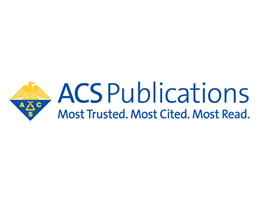FOR IMMEDIATE RELEASE
ACS News Service Weekly PressPac: August 18, 2021
Recent advances in triboelectric nanogenerators (TENGs)
Triboelectric nanogenerators, or TENGs, harvest electrical energy from wasted mechanical energy in their surroundings. These devices can use human movements, wind, water waves and other energy sources to generate electricity for electronic devices and self-powered sensors. Below are some recent papers published in ACS journals that report on new applications for TENGs.
“All-Weather Droplet-Based Triboelectric Nanogenerator for Wave Energy Harvesting”
ACS Nano
July 30, 2021
The researchers made an all-weather TENG that could someday be placed in the hull of a ship to harvest energy from ocean waves. The device works under extreme conditions with high humidity or high concentrations of salt, acid or alkali solutions, as might be encountered in real ocean environments.
“Highly Efficient Raindrop Energy-Based Triboelectric Nanogenerator for Self-Powered Intelligent Greenhouse”
ACS Nano
June 30, 2021
A TENG was developed that can harvest the energy of raindrops to power temperature and humidity sensors in a greenhouse. The device would be useful for powering “intelligent greenhouses” in maritime or tropical climates that receive rain throughout the year, the researchers say.
“Low-Cost, Environmentally Friendly, and High-Performance Triboelectric Nanogenerator Based on a Common Waste Material”
ACS Applied Materials & Interfaces
June 24, 2021
Researchers converted waste milk cartons into low-cost, highly efficient TENGs. The new composite materials could harvest energy from movements to light up LEDs and power a digital watch. The TENGs could help clean up milk carton waste in the environment while powering portable electronic devices, the researchers say.
“Restoring Tactile Sensation Using a Triboelectric Nanogenerator”
ACS Nano
June 17, 2021
People with peripheral nerve or soft tissue injuries can lose their sense of touch. Implanted neuro-prosthetic devices could help, but they are limited by the need for an external power supply. Researchers made a TENG that, when implanted under the skin, could convert the pressure of touch into an electrical potential that is conveyed to healthy nerves, stimulating them. In rats, the device restored sensation to hindfeet with damaged nerves.
###
The American Chemical Society (ACS) is a nonprofit organization chartered by the U.S. Congress. ACS’ mission is to advance the broader chemistry enterprise and its practitioners for the benefit of Earth and all its people. The Society is a global leader in promoting excellence in science education and providing access to chemistry-related information and research through its multiple research solutions, peer-reviewed journals, scientific conferences, eBooks and weekly news periodical Chemical & Engineering News. ACS journals are among the most cited, most trusted and most read within the scientific literature; however, ACS itself does not conduct chemical research. As a leader in scientific information solutions, its CAS division partners with global innovators to accelerate breakthroughs by curating, connecting and analyzing the world’s scientific knowledge. ACS’ main offices are in Washington, D.C., and Columbus, Ohio.
To automatically receive press releases from the American Chemical Society, contact newsroom@acs.org.
Note: ACS does not conduct research, but publishes and publicizes peer-reviewed scientific studies.
Media Contact
ACS Newsroom
newsroom@acs.org


